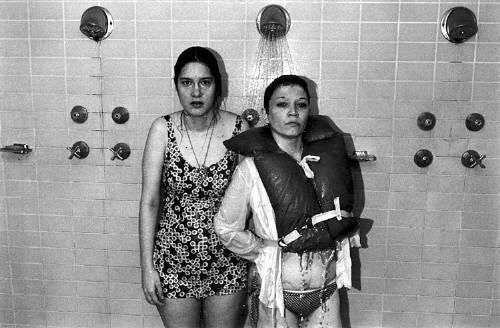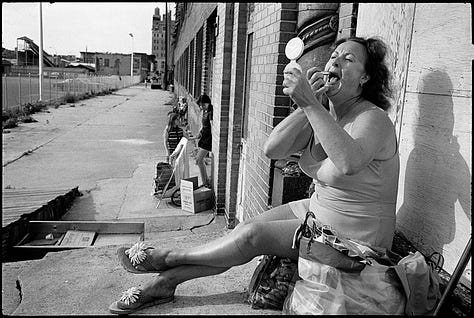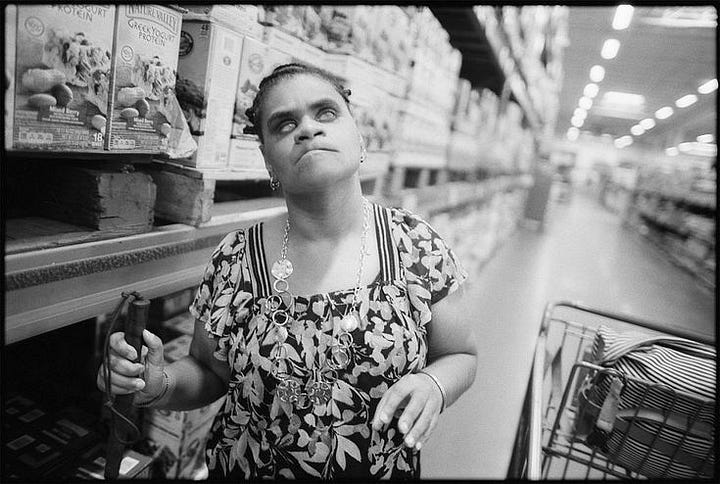Mary Ellen Mark: The Visionary Documentary Photographer Who Changed Visual Storytelling Forever
How a Documentary Photographer Changed the Way We See the World
Introduction to Mary Ellen Mark
Mary Ellen Mark was more than just a documentary photographer; she was a storyteller who brought society's unseen and often ignored aspects to the forefront. Renowned for her compassionate and unfiltered approach, Mark’s images revealed the humanity of her subjects with profound honesty. Her remarkable career spanned over four decades, during which she established herself as a pivotal figure in the world of photojournalism and fine art photography.
Early Life and Education
Born on March 20, 1940, in Philadelphia, Pennsylvania, Mary Ellen Mark’s fascination with art and storytelling began at an early age. She pursued her creative passions by earning a Bachelor of Fine Arts in Painting and Art History from the University of Pennsylvania. However, it was during her time at the Annenberg School for Communication, where she obtained her Master’s degree in Photojournalism, that her passion for photography truly blossomed.
Her formal education gave her the skills and vision to blend artistic composition with raw storytelling. Mark’s early influences included iconic photographers like Dorothea Lange and Henri Cartier-Bresson, whose works emphasized emotional depth and aesthetic beauty. Inspired by their ability to capture candid moments that spoke volumes, Mark began to forge her path as a documentary photographer.
Journey into Documentary Photography
Mary Ellen Mark’s career took off in the late 1960s when she moved to New York City, which became a rich canvas for her documentary projects. The city's chaotic yet vibrant energy drew her to document lives often ignored by mainstream media. From the struggling residents of mental institutions to the harsh realities of homelessness, Mark’s compassionate eye captured the stories that others overlooked.
One of her most impactful early works was her documentation of Oregon State Hospital for the film adaptation of One Flew Over the Cuckoo’s Nest (1975). Her photo essay, which provided an unfiltered glimpse into patients' lives within the institution, was both haunting and deeply human. It also set the tone for her future projects, demonstrating her ability to combine empathy with artistic excellence.




However, Streetwise (1983) solidified Mary Ellen Mark’s reputation as one of the most compelling documentary photographers of her time. The project began as an assignment for Life magazine but soon expanded into a more significant collaboration with filmmaker Martin Bell. Together, they produced a documentary that chronicled the lives of homeless teenagers in Seattle, mainly focusing on a girl named Tiny. The resulting film and photographic series were lauded for their brutal honesty and emotional resonance.
Unique Style and Impact on Documentary Photography
Her commitment to authentic storytelling defined Mary Ellen Mark’s documentary photography style. Unlike many photographers who maintained a distant, observational approach, Mark engaged with her subjects on a profoundly personal level. She spent months, sometimes years, building relationships with the people she photographed. This dedication to forging genuine connections enabled her to capture moments of vulnerability and resilience that most photographers would have missed.
Her preference for black-and-white photography was not just a stylistic choice but a deliberate effort to strip away distractions and focus on the emotional essence of her subjects. The absence of colour made her photographs timeless, enhancing their emotional power and visual impact.
Mark’s work has appeared in prestigious publications such as LIFE, The New Yorker, Rolling Stone, and Vanity Fair. Her compelling imagery challenged societal perceptions and gave voice to the voiceless, making her a pioneer in socially conscious photography.







Legacy and Influence on Modern Photography
Even after her passing in 2015, Mary Ellen Mark’s influence on documentary photography continues to resonate. Her dedication to empathy-driven storytelling paved the way for contemporary photographers to approach their subjects with greater sensitivity and authenticity.
Mark’s work also opened doors for female photographers striving to make their mark in what was once a male-dominated industry. By staying true to her vision and refusing to compromise her principles, she became a powerful role model for generations of photographers.
Today, her images are a testament to visual storytelling's enduring power as a force for social change. Photographers and documentarians continue to study her work, drawing inspiration from her ability to blend artistry with genuine human connection.
This has embedded affiliate links.




